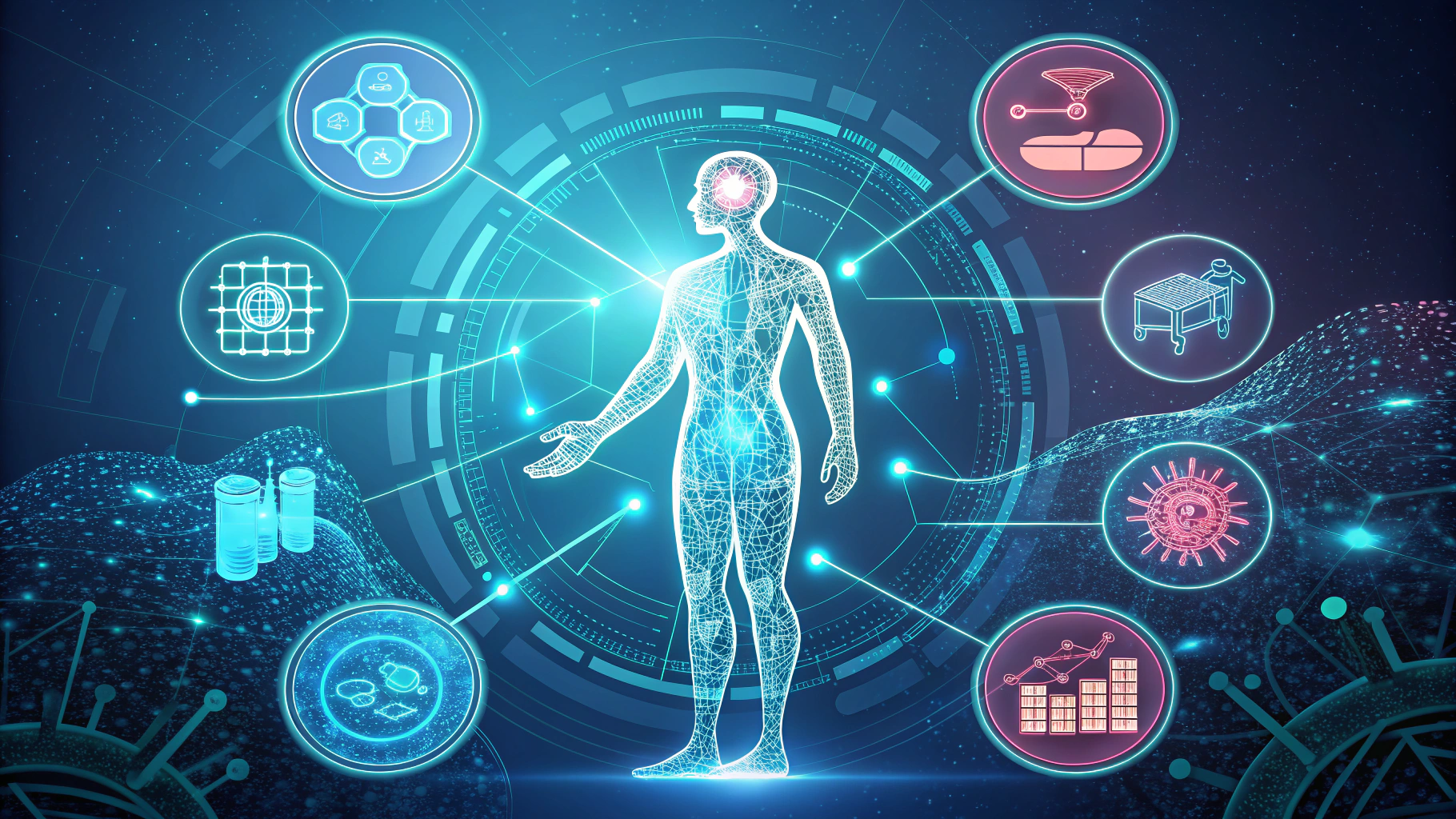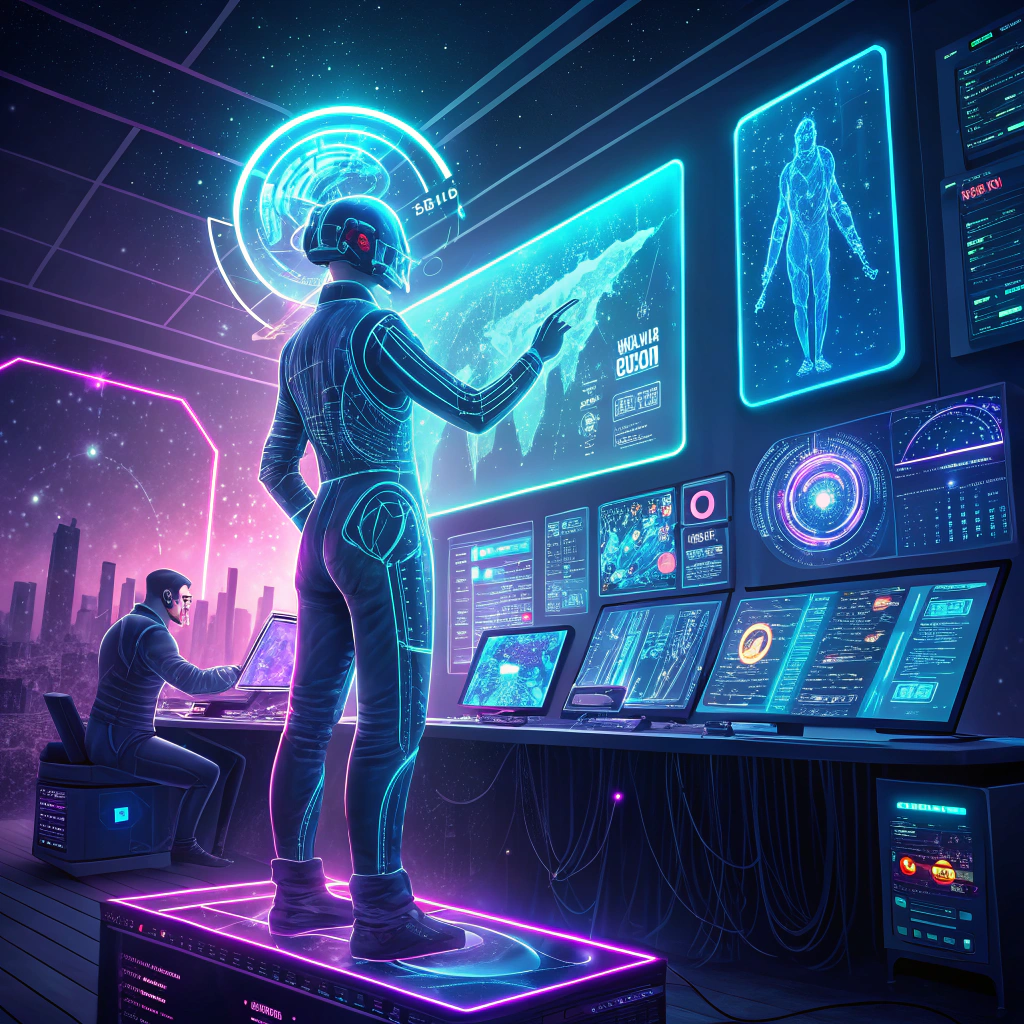The Rise of AI Agents: Revolutionizing the Digital Landscape

The Rise of AI Agents: Revolutionizing the Digital Landscape
Introduction
In the rapidly evolving digital era, Artificial Intelligence (AI) has emerged as a transformative force, reshaping industries and redefining the way we interact with technology. Among the most significant advancements in AI are AI agents, autonomous programs designed to perform specific tasks and make decisions on behalf of users. These intelligent agents are revolutionizing various sectors, enhancing efficiency, and driving innovation. In this comprehensive article, we explore the world of AI agents, their applications, benefits, and the future they promise.
Understanding AI Agents
AI agents are software entities that utilize AI algorithms to perceive their environment, reason about it, and take actions to achieve specific goals. These agents can operate autonomously or semi-autonomously, interacting with humans or other agents to perform tasks ranging from simple data retrieval to complex decision-making processes.
Types of AI Agents
- Reactive Agents: These agents respond to stimuli from their environment without maintaining an internal state. They operate based on predefined rules and react instantly to changes.
- Proactive Agents: Unlike reactive agents, proactive agents can plan and anticipate future events. They maintain an internal state and can make decisions to achieve long-term goals.
- Hybrid Agents: Combining characteristics of both reactive and proactive agents, hybrid agents can respond to immediate stimuli while also considering future implications.
Applications of AI Agents
AI agents are being deployed across a multitude of industries, streamlining operations and introducing innovative solutions. Here are some key applications:
1. Customer Service and Support
AI agents, in the form of chatbots and virtual assistants, are transforming customer service by providing 24/7 support, handling inquiries, and resolving issues efficiently. They can process natural language, understand customer queries, and offer personalized responses, significantly reducing response times and enhancing customer satisfaction.
2. Healthcare
In the healthcare sector, AI agents assist in patient monitoring, diagnosis, and treatment planning. These agents can analyze vast amounts of medical data, identify patterns, and offer insights to healthcare professionals, improving patient outcomes and optimizing resource utilization.
3. Finance
AI agents in finance are revolutionizing trading, risk assessment, and fraud detection. By analyzing market trends and data in real-time, these agents can make informed investment decisions, offer personalized financial advice, and detect anomalies to prevent fraudulent activities.
4. E-commerce
AI agents are enhancing the e-commerce experience by personalizing recommendations, optimizing supply chain management, and automating inventory control. They analyze consumer behavior and preferences to provide tailored product suggestions, increasing sales and customer loyalty.
5. Autonomous Vehicles
One of the most exciting applications of AI agents is in autonomous vehicles. These agents process data from sensors, cameras, and GPS to navigate roads, make driving decisions, and ensure passenger safety. They have the potential to reduce accidents and revolutionize transportation.
Benefits of AI Agents
The integration of AI agents into various sectors offers numerous advantages:
- Increased Efficiency: AI agents can process and analyze data faster than humans, leading to quicker decision-making and task completion. This efficiency translates into cost savings and improved productivity for businesses.
- Scalability: AI agents can handle large volumes of tasks simultaneously, making them ideal for scaling operations without the need for significant human resources.
- Personalization: By analyzing user data and preferences, AI agents can offer personalized experiences, enhancing user satisfaction and engagement.
- Continuous Learning: AI agents can continuously learn from new data and experiences, improving their performance over time and adapting to changing environments.
Challenges and Considerations
While AI agents offer substantial benefits, they also present challenges that must be addressed:
- Ethical and Privacy Concerns: The use of AI agents raises ethical questions about data privacy and the extent of autonomy granted to these agents. Ensuring transparency and protecting user data are critical considerations.
- Security Risks: AI agents can be vulnerable to cyberattacks, potentially leading to data breaches or manipulation. Implementing robust security measures is essential to safeguard against such risks.
- Dependency: Over-reliance on AI agents could lead to reduced human skills and decision-making capabilities. Striking a balance between automation and human involvement is crucial.
The Future of AI Agents
As AI technology continues to advance, the future of AI agents holds immense potential. We can expect more sophisticated and intelligent agents capable of handling complex tasks across various domains. Here are some trends shaping the future of AI agents:
- Enhanced Natural Language Processing (NLP): Improvements in NLP will enable AI agents to understand and interpret human language more accurately, leading to more natural and effective interactions.
- Integration with the Internet of Things (IoT): AI agents will increasingly integrate with IoT devices, facilitating seamless communication and automation across smart homes, cities, and industries.
- Greater Autonomy: AI agents will become more autonomous, capable of making complex decisions without human intervention, thereby increasing efficiency and productivity.
- Collaborative Intelligence: The future will see AI agents working alongside humans and other AI systems, fostering collaboration and leveraging collective intelligence to solve complex problems.
Conclusion
AI agents are at the forefront of the AI revolution, driving innovation and transforming industries. Their ability to perform tasks autonomously, adapt to changing environments, and deliver personalized experiences makes them invaluable assets in the digital age. As we continue to harness the power of AI agents, it is crucial to address ethical, privacy, and security concerns to ensure a future where AI agents enhance human capabilities and contribute positively to society. Embracing this technology responsibly will pave the way for a smarter, more efficient, and interconnected world.



